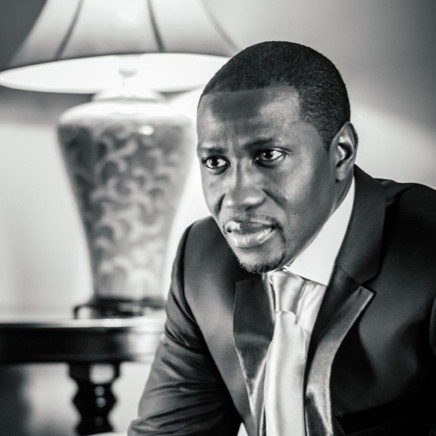Ed.D. Student Applying His Education to Diplomacy: Baimba Yilla

Whether you’re working in education or a different industry, quality leadership skills can transform an organization.
Baimba Yilla, a Foreign Service Officer for the U.S. Department of State, shares how Marymount University’s Online Ed.D. Program applies to his current career, what motivated him to enroll, why he values leadership and more in this interview.
How has our Ed.D. allowed you to build on your military service and lead into the future?
I have yet to fully leverage the new knowledge and skills offered by the Ed.D. program. As you know, we are currently conducting the requisite phases of our dissertation in practice (DiP) with the aim of completing the study by spring/summer 2023. The leadership orientation I have developed, including the know-how to drive innovation while enabling people to maximize their potential, will serve me well in my current field. The Foreign Service, with international diplomacy as its core practice, is tailor-made for people who thrive in the service of others — people who advocate for causes greater than their self-interest with the requisite intellect, awareness, collaborative spirit and empathy.
Did Marymount’s military and veteran services impact your decision to study with us?
I was not aware of these services, but Marymount's very strong position as a leading academic institution in the region drew my interest. I gained firsthand knowledge of the University's tremendous teaching and knowledge-sharing power as an undergraduate and graduate student in the late 1990s and early 2000s. The school does an outstanding job of catering to the needs of each student, with the ideals of empowerment and inclusion at the center of those efforts.
“Marymount's very strong position as a leading academic institution in the region drew my interest.”
Describe your professional background and interests. What led you to pursue an Ed.D.?
I am a Foreign Service Officer for the U.S. Department of State. I have worked in this capacity since 2002, and I have served in places as far away from home as Pakistan and South Africa and as close to home as the United Nations in New York. My personal experiences, as a child born to immigrants from Sierra Leone, shaped my understanding of the importance of formal education. Entering the workforce with the Department of State similarly drew my attention to education. While in the foreign field, my focus turned to the leadership ethics and practices one could derive from formal education, as a result of the conditions I found on the ground in the countries in which I served. I witnessed firsthand the adverse impact on organizations and governments that an absence of ethical leadership can portend for people, as well as the heavy socio-economic toll and accompanying instability it can bring about for the life of nations. I saw the imperative for ethics and transformative leadership and the need for social justice in countries like Tanzania, South Africa, Zimbabwe, Ghana, Pakistan and within the United Nations in New York. These experiences centered my focus on helping others. I developed an interest to help change the lives of people; to blend, in managing school systems and running a government, the transformative powers of professional knowledge with the best leadership practices. These are the factors and experiences that led me to pursue an Ed.D at Marymount University.
“I have been given an opportunity to experience hands-on learning based on proven research and an understanding of how good leadership can change an organization, or the course of a nation’s history.”
What differentiates Marymount’s Ed.D. program?
Marymount's program is administered by thought leaders who understand the realities of our world and the unique needs of working professionals. The courses offered are designed to balance these very realities and needs so as to ensure successful completion of the program by candidates who must necessarily balance their work-life demands. Instructional delivery is also paramount. The school has done an outstanding job of selecting professors who not only know the materials they teach but also exemplify the very leadership orientation and practice that the Ed.D program strives to instill in the students.
Why are leadership and education so important in your industry?
Leadership and education are foundational elements for the kinds of developments that can affect change. The courses I have been fortunate to take thus far in the program have reinforced this understanding. I have been given an opportunity to experience hands-on learning based on proven research and an understanding of how good leadership can change an organization, or the course of a nation’s history.
Interested in Leading Change in the Context of your Career?
The Online Doctor of Education (Ed.D.) in Educational Leadership and Organizational Innovation applies to a variety of careers and industries in addition to education. As you have read from Baimba Yilla’s experience, our Online Ed.D. program is designed to be flexible enough for working professionals, and it features a robust curriculum that can be implemented directly to your field.
Connect with an Enrollment Advisor today to learn more and take the next step.
